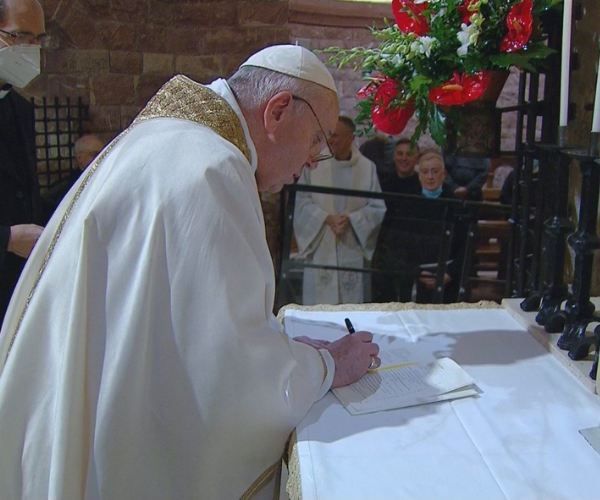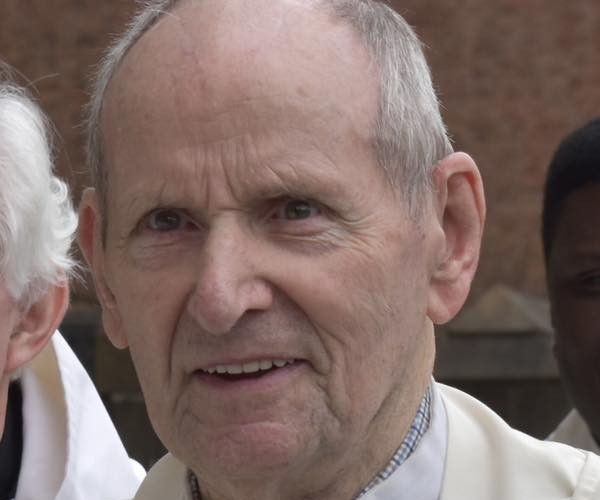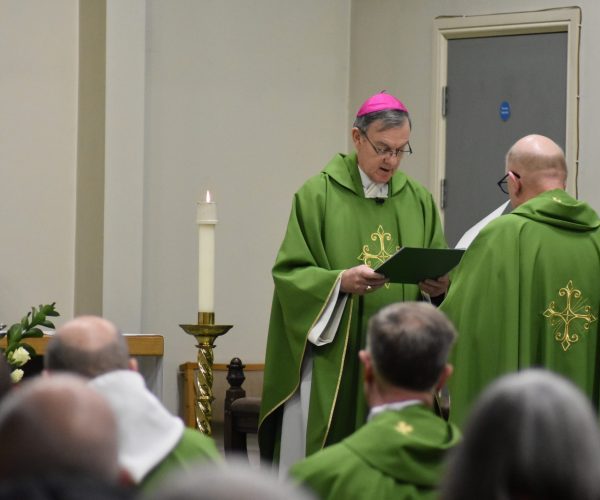
Part Two: A Reflection on Fratelli Tutti
Monday 9th November 2020This is the final section of Fr Mark Paver’s two part summary and reflection on Fratelli Tutti, Pope Francis’s latest encylical. You can read the first part of Fr Mark’s article here.
Principles for a More Fraternal World
The Pope is not suggesting a tweak here and a tweak there but rather he realises that “everything…depends on our ability to see the need for a change of heart, attitudes and lifestyles.” (FT 166). Among other things he urges a need for a society that recognises certain fundamental truths, a need for encounter and dialogue with cultures beyond our own and a paradigm shift in the motivations of politics.
A Society Based on Truth
The basis of consensus in society, argues the Pope, cannot be relativism which, “under the guise of tolerance…ultimately leaves the interpretation of moral values to those in power, to be defined as they see fit” (FT 206). Instead we must acknowledge the existence of certain enduring values, however demanding it may be to discern them in order to develop robust and solid social ethics (cf. FT 211). Above all, “if society is to have a future, it must respect the truth of our human dignity and submit to that truth.” (FT 207). Albeit from different perspectives, this principle truth can be the basis of ethical norms for the agnostic and the believer alike.
A Culture of Encounter
To build such a consensus requires a culture of encounter. This means being passionate about meeting others, recognising their right to be different, seeing how their difference enriches the whole and standing in their place so as to discover what is genuine in their motivations and concerns. The alternative, ignoring the interests and rights of others, will inevitably lead to social breakdown and eventually violence. The path forward is “recognition”, which, “as it becomes a culture, makes possible the creation of a social covenant” (FT 218)
A Renewal of Politics
At the service of this culture of encounter must be a new kind of politics, one that is not out for short term gain and self interest but is motivated by service of the common good and ultimately by love. For too long politics has been at the service of free market principles as if they can solve all the world’s problems. The pandemic has shown the fallacy in this way of thinking. Instead, “we must put human dignity back at the centre and on that pillar build the alternative social structures we need” (FT 168). When ordered towards the common good Pope Francis recognises politics as a “lofty vocation and one of the highest forms of charity” (FT 167), but he urges politicians not to be concerned with gaining votes and amassing popularity, rather to ask the “real and potentially painful questions” of themselves such as, “‘How much love did I put into my work?’ ‘What did I do for the progress of our people?’ ‘What mark did I leave on the life of society?’ ‘What real bonds did I create?’ ‘What positive forces did I unleash?’ ‘How much social peace did I sow?’ ‘What good did I achieve in the position that was entrusted to me?’” (FT 197).
Start Small and Rediscover Kindness
It would be easy to feel overwhelmed by the scale of the challenge that the Pope outlines and the sense that the solutions lie beyond our powers. But the Pope encourages us saying “we should not expect everything from those who govern us, for that would be childish” (FT 77). We must begin small, in the concrete situations of our lives on a case by case basis approaching each person’s needs “with the same care and concern that the Samaritan showed for each of the wounded man’s injuries” (FT 78).
Above all we should recover kindness, a fruit of the Holy Spirit (Galatians 5:22). We see examples of kindness all the time – even, and perhaps especially, in the time of the pandemic. We can play our part in making kindness all the more pervasive in our homes, streets and communities. “Individuals who possess this quality help make other people’s lives more bearable, especially by sharing the weight of their problems, needs and fears” (FT 223).
“Every now and then, miraculously, a kind person appears and is willing to set everything else aside in order to show interest, to give the gift of a smile, to speak a word of encouragement, to listen amid general indifference.” (FT 224) In other words kindness recognises the dignity of the other and this is, above all, is what makes us all brothers and sisters.
You can read Fratelli Tutti by clicking here, a short summary of the text by clicking here and a long summary by clicking here.
Tagged | Catholic Church



